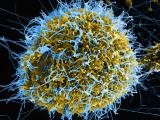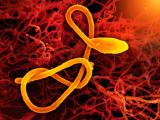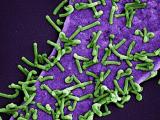May 17, 2013 (CIDRAP News) – Yellow fever vaccination boosters, typically given 10 years after initial immunization, are no longer necessary, the World Health Organization (WHO) said today.
The guidance change stems from a recent review by the WHO's Strategic Advisory Group of Experts on immunization (SAGE), according to a report today in the WHO's Weekly Epidemiological Record (WER).
Yellow fever is endemic in 44 countries, mainly in tropical areas of Africa and the Americas. The disease causes about 200,000 infections each year, and about 15% of them progress to a severe form of the disease that is deadly for half of those patients. There is no treatment for yellow fever, so vaccination is the key strategy for protecting people.
Of 600 million doses of the vaccine given since vaccination programs began in the 1930s, only 12 cases of post-vaccination yellow fever cases have been identified, the WHO said. All of the "vaccine failure" cases occurred within 5 years of vaccination, which suggests that immunity does not wane over time.
Helen Rees, MD, who chairs the SAGE group, said in the statement that after looking at good evidence, it became clear that a single dose is effective. "This is extremely important for countries where yellow fever is endemic, because it will allow them to reconsider their vaccine scheduling. It is also important for travelers," she said.
Rees is the executive director of the Wits Reproductive and HIV Institute at the University of Witwatersrand in Johannesburg, South Africa.
A yellow fever working group from SAGE was asked to review the current evidence with an eye toward updating a WHO 2003 position paper, according to the WER report. The group produced an extensive background paper that looked at whether a booster dose is needed and what the risks of vaccination are to older people.
Their review found that vaccine failures are extremely rare and do not cluster as time increases after vaccination, though surveillance studies may identify certain risk groups—such as infants or HIV-infected patients—that might benefit from a second primary or booster dose.
The working group found that that the risk of yellow fever vaccine–related viscerotropic disease in people age 60 or older is higher than in younger groups, but the overall risk is still low. It noted that clinicians should recommend the vaccine, based on a careful risk-benefit assessment that weighs the risk of acquiring the disease against the risk of a potential serious adverse event.
The vaccine isn't recommended for people who are severely immunocompromised, though it can be given to asymptomatic patients with HIV who fall below a CD4+ cutoff. The group also said HIV testing is not needed as a prerequisite for vaccination in routine childhood immunization programs or mass vaccination campaigns.
For pregnant and breastfeeding women, the vaccine is recommended if travel to an endemic area can't be postponed or avoided. The WHO said medical teams should counsel pregnant and breastfeeding women at high risk for the disease regarding the benefits and potential risks of vaccination.
More study is needed on the co-administration of yellow fever vaccine with other vaccines, but so far there is not enough evidence to change current recommendations, the working group said in its report.
See also:
May 17 WHO press release
May 17 WHO WER report


















